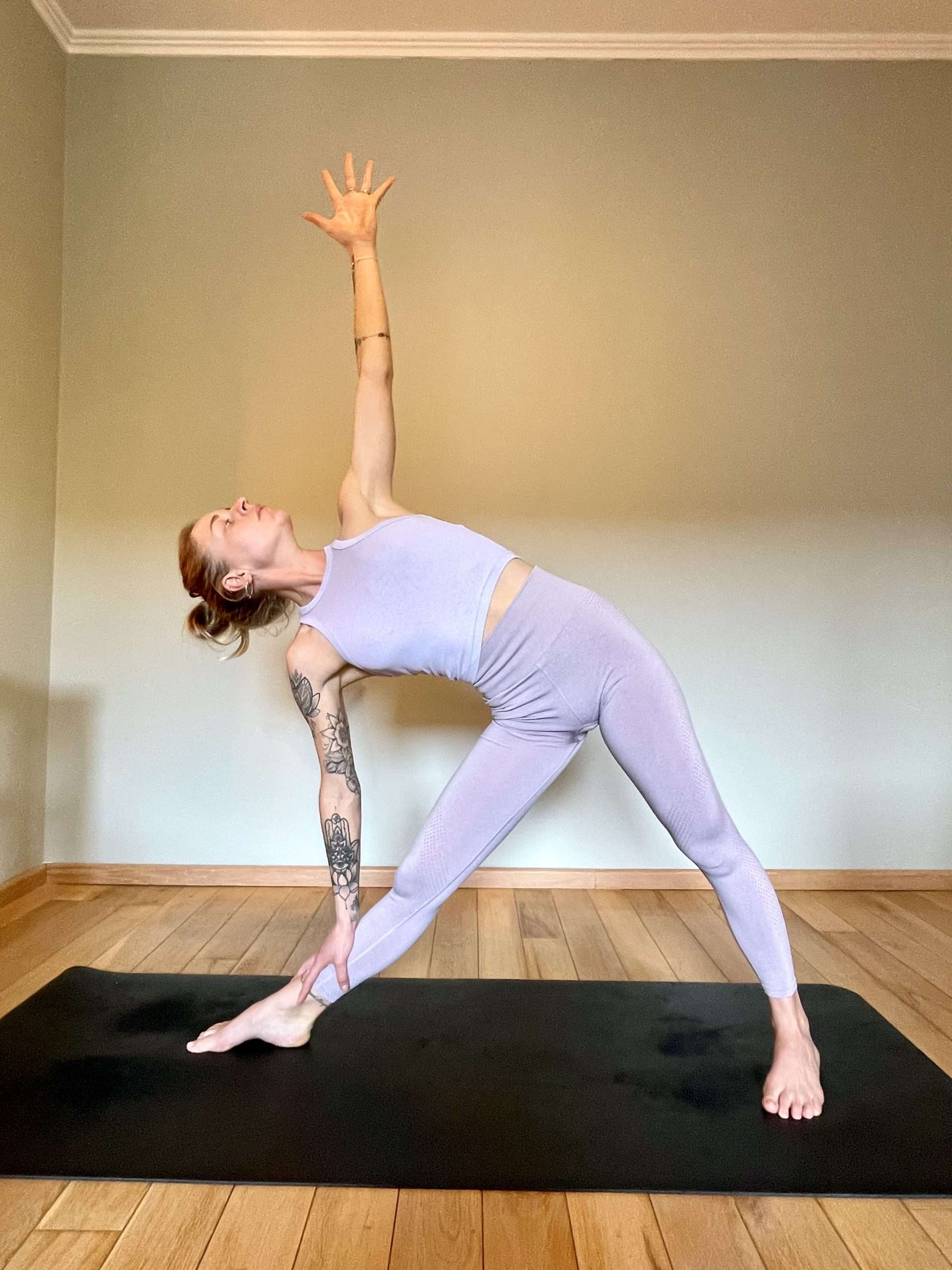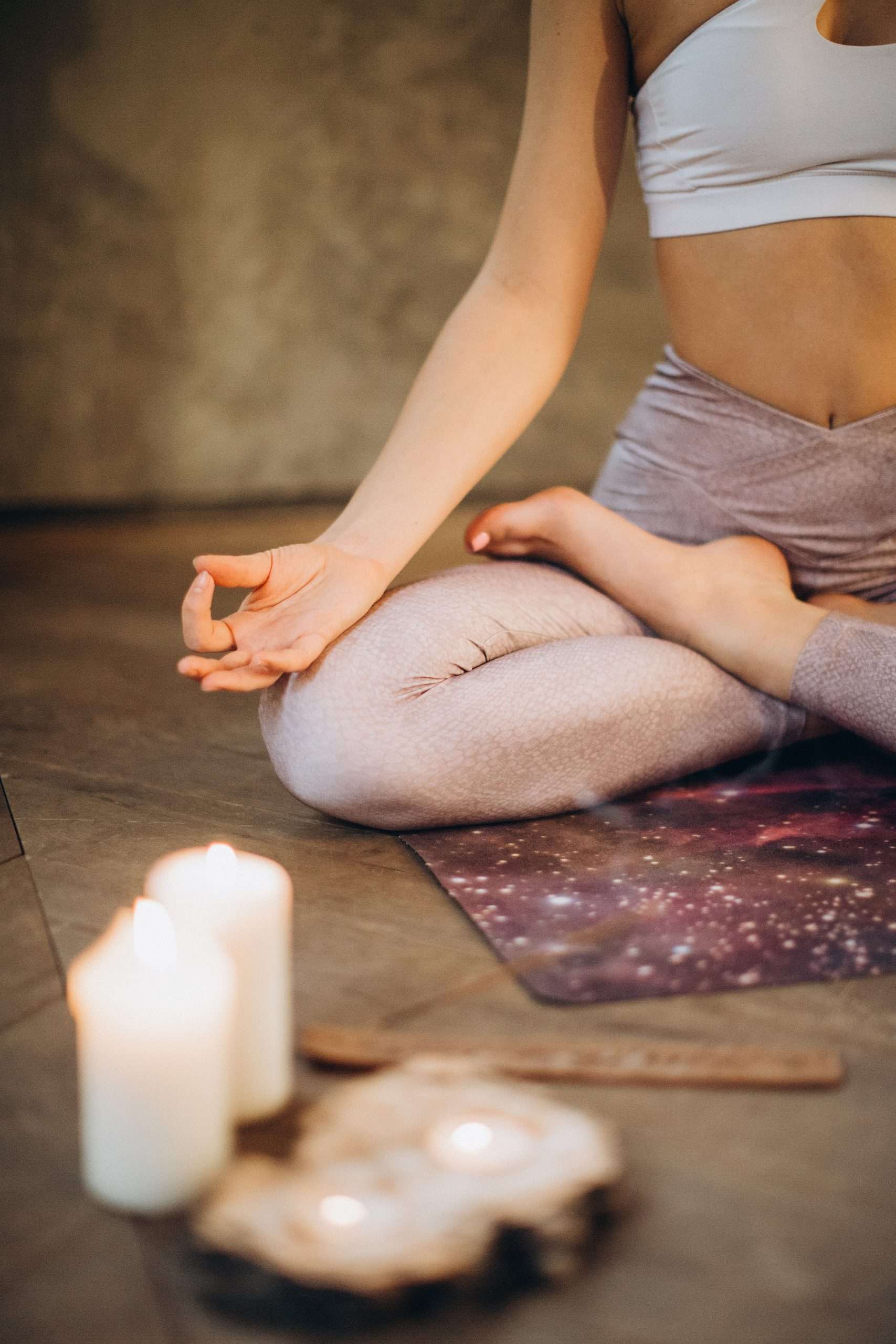Why To Do Yoga: Top 10 Benefits of Yoga
Yoga is a holistic discipline that originated in ancient India that offers many benefits and there are many reasons as to why to do yoga. The holistic elements of yoga refer to its spiritual, mental, and physical components that address the Self as a whole, not just independent parts. But what exactly is yoga, and what are its benefits, and why to do yoga at all?
At its core, yoga is a practice that combines physical postures (asanas), breathing techniques (pranayama), and meditation to promote physical, mental, and spiritual well-being. The word “yoga” itself means “to yoke” or “to unite” in Sanskrit, and the practice is often seen as a way to connect with oneself and with a higher energy.

People find their way to yoga for different reasons. Someone may be feeling very stressed, and a friend recommends they try yoga. Another may back pains and poor posture for which their doctor recommends a yoga practice. Yet another may enjoy the physically challenging arm balances or inversions.
The beauty of yoga is that it is open to everyone and can, oftentimes, leads people from a starting point to another, unexpected outcome. This was also true for myself. I started yoga from a physical angle – and my practice is still very “physical” if you want. However, along the way, yoga has taught me so much about the importance and benefits of breathing, about the beauty of sitting in silence, learning to listen within and trust in my strengths and abilities – on and off the mat.
Honestly, at this point I cannot imagine my life without yoga: a welcoming friend that is always non-judgmental, always supportive, and meets you where you are at. This and many benefits of the practice are the reason as to why to do yoga and today I will share some of the top benefits of yoga with you for extra inspiration.

So, here are the top 10 reasons why you should consider incorporating yoga into your life:
1. Yoga Reduces Stress and Anxiety
One main benefit of yoga is that it is a great way to reduce stress and anxiety. The physical postures and deep breathing techniques used in yoga help to calm the nervous system and promote feelings of relaxation and calmness.
By deepening the breath, we quite literally slow down the heart rate. Any type of exercise that ranges in a low to moderate heart frequency can help reduce stress. By learning to focus on our breath, the movement, and alignment, we learn to focus and quieten the mind, giving less space to anxious or irrational thoughts.
2. Yoga Improves Flexibility and Balance
Yoga postures help to improve flexibility and balance by stretching and lengthening muscles, as well as challenging your balance in different ways. Over time, regular practice can help to increase range of motion and prevent injury. And no! You do absolutely not have to be flexible in order to start your yoga practice. Instead, regular, committed practice will have the side-effect of improved flexibility whether you want it or not.
Yoga also teaches you balance in a number of ways and poses – whether that is standing in Tadasana (Mountain Pose) or whether that is standing on your hands (Urdhva Mukha Vrksasana). Yoga also works the body unilaterally – meaning one side at a time and independently of the other, which creates balance between the left and right side of the body.
3. Yoga Increases Strength and Tone Muscles
Many yoga postures require a good amount of strength and can help to tone and strengthen muscles all over the body, including the core, arms, legs, and back. The beauty of yoga is that it is a full-body type of exercise that will challenge your muscles and body differently, depending on the type of practice or focus of a class.
There are always modifications and variations for almost any yoga pose that can help you build up the necessary strength. Ask your teacher for tips on this or book a private class with me, and I will give you all the options to practice yoga with confidence and in alignment.

4. Yoga Helps Improve Breathing and Lung Capacity
Yoga incorporates different breathing techniques (pranayama) that can help to increase lung capacity and improve overall breathing function. This can be especially helpful for people with respiratory conditions such as asthma.
What may seem challenging in the beginning, will become easier and then second nature over time. Be patient and give yourself, and your body, the time to learn the proper breathing. The most commonly used breath in yoga classes is ujjayi – victorious breath.
To practice ujjayi: try making a silent “sa” sound as you inhale, and a silent “ha” sound as you exhale. Slightly contract the throat muscles and always breathe through your nose. I teach you everything you need to know to start your yoga practice with confidence in my Holistic Yoga Coaching.
5. Yoga Boosts Energy and Vitality
Regular yoga practice can help to boost energy levels and promote feelings of vitality and well-being, because yoga increases circulation, stimulates the immune system, and promotes healthy digestion.
In this sense, yoga works similarly as does most exercise. By moving the body, we stimulate blood flow, which helps us feel more energised. Yoga – in contrast to most other exercise – has the added benefit of bringing the head below the heart in certain poses, as for example, Downward Facing Dog (Adho Mukha Svanasana). By doing so, the freshly oxygenated blood is also transported to the brain and all throughout the body.
6. Yoga Reduces Back Pain
Yoga postures can be very effective in reducing back pain, as they help to stretch and strengthen the muscles of the back and improve overall posture. Some common lifestyle factors that cause back pain (especially lower back pain) are a sedentary lifestyle, bad posture, overweight, or factors related to poor quality sleep and nutrition.
In order to counteract some of these lifestyle factors, it is important to strengthen the back muscles to support the spine and stimulate the blood flow. It is also very important to have a strong core to support the back, as well as maintaining flexibility and mobility in the muscles and joints.
Check out my article Yoga for Lower Back Pain: 7 Yoga Poses to Help with Back Pain.
7. Yoga Enhances Mental Clarity and Focus
Yoga helps to improve mental clarity and focus by promoting mindfulness and reducing stress and anxiety. This can be especially helpful for people who struggle with concentration or who have a high-stress lifestyle.
Yoga can be considered a kind of moving meditation, where we synchronise the movement with the breath, which allows our minds to slow down and focus. Meditation is also an important aspect of a holistic yoga practice and has been shown to improve focus and concentration. Read more in my article 5 Main Benefits of Meditation To Improve Health and Well-Being.

8. Yoga Boosts Self-Confidence
As you progress in your yoga practice and become more confident in your abilities, you may find that your overall self-confidence improves. Yoga encourages self-awareness and self-acceptance, which can help to boost your sense of self-worth.
If you still have questions, feel insecure in your yoga practice, or walking into your first yoga class, check out my Services and pick how I can best support you to practice yoga with confidence and in alignment.
9. Yoga Can Aid in Weight Loss
Yoga can be a good complement to a weight loss program as it can help to increase metabolism, promote healthy digestion, and tone muscles all over the body.
Note of caution: Yoga is not (necessarily) a high intensity type of exercise and the styles of yoga vary greatly in their physical intensity and therefore in the amount of calories you burn doing yoga. Please do not expect the same results from a yoga practice as you would from regularly exercising at the gym. The more ‘physical’ practices include Ashtanga Yoga, The Rocket®, or powerful Vinyasa classes.
Book your private yoga class with me here.
However, the beautiful thing about yoga is the increased connection you form with your body, which will allow you – over a longer time – to listen better to you body’s needs. And more often than not, we become more mindful in our behaviours, including how and what we eat.
10. Yoga Promotes Inner Peace and Contentment
Perhaps the greatest benefit of yoga is its ability to promote inner peace and contentment. By encouraging mindfulness, deep breathing, and relaxation, yoga can help you to connect with your inner self and find a greater sense of peace and fulfilment.
You’ll learn to listen more to your inner guidance, to your body, and learn to discourage behaviours and patterns that no longer serve you.
Are you totally excited to get started and learn more about yoga? In my Holistic Yoga Coaching programme, I teach you all the fundamentals that are important for you and your practice, so that you can feel more confident in your practice and with yourself. Get all the details here!






